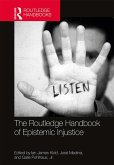Through a detailed analysis that draws on work across philosophy, the law, and social psychology, Criminal Testimonial Injustice shows that, from the very beginning of the American criminal legal process in interrogation rooms to its final stages in front of parole boards, testimony is extracted from individuals through processes that are coercive, manipulative, or deceptive. This testimony is then unreasonably regarded as representing the testifiers' truest or most reliable selves. With chapters ranging from false confessions and eyewitness misidentifications to recantations from victims of sexual violence and expressions of remorse from innocent defendants at sentencing hearings, it is argued that there is a distinctive epistemic wrong being perpetrated against suspects, defendants, witnesses, and victims. This wrong involves brute State power targeting the epistemic agency of its citizens, extracting false testimony that is often life-shattering, and rendering the victims in question complicit in their own undoing. It is concluded that it is only through understanding what it means to respect the epistemic agency of each participant in the criminal legal system that we can truly grasp what justice demands and, in so doing, to reimagine what is possible.
Dieser Download kann aus rechtlichen Gründen nur mit Rechnungsadresse in A, B, BG, CY, CZ, D, DK, EW, E, FIN, F, GR, HR, H, IRL, I, LT, L, LR, M, NL, PL, P, R, S, SLO, SK ausgeliefert werden.









